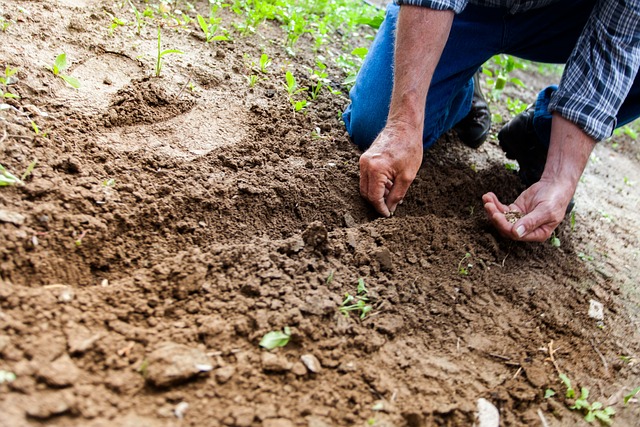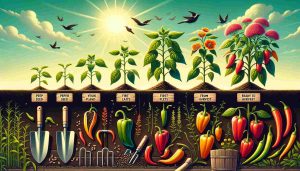Seeds play a vital role in gardening, farming, and even culinary pursuits. Whether you’re a seasoned gardener or a beginner, understanding the shelf life of seeds is essential for successful planting and growing. In this article, I will delve into the intriguing topic of seed expiration. I will answer common questions such as “Does grass seed expire?” and “Can you eat expired chia seeds?” I will also explore the expiration of flowers, vegetables, herbs, and other types of seeds. By the end, you will have a clear understanding of seed longevity and how to maximize the potential of your seeds.
Let’s dig in and discover the fascinating topic of seed expiration!
Understanding Seed Expiration
Seeds, in their essence, are living organisms in a dormant state. However, over time, their viability decreases, and they eventually lose the ability to germinate and grow into plants. This process is known as seed expiration or seed viability loss.
Factors influencing seed longevity:
Several factors contribute to the shelf life of seeds. Understanding these factors can help us better comprehend seed expiration. Some key factors include:
- Seed type: Different types of seeds have varying natural lifespans. Some seeds, like lettuce or onion seeds, have relatively short viability, while others, like tomato or bean seeds, can remain viable for several years.
- Storage conditions: Proper storage conditions significantly impact seed longevity. Seeds should be stored in cool, dry, and dark environments. Exposure to moisture, heat, and light can accelerate seed deterioration.
- Moisture levels: Excessive moisture can trigger premature germination or promote fungal and bacterial growth, leading to seed spoilage. Low moisture content helps to maintain seed viability.
- Temperature variations: Seeds are sensitive to temperature fluctuations. Extreme heat or cold can cause damage and reduce their viability. Stable, moderate temperatures are ideal for seed storage.
So, yes, seeds do expire. The viability of seeds decreases over time, and they eventually lose the ability to germinate and grow into plants. Factors like seed type and storage conditions can affect their shelf life.
Understanding these factors will help us comprehend why and how seeds expire. In the following sections, I will explore the expiration of specific seed types, including grass seeds, edible seeds like chia seeds, flower seeds, vegetable seeds, and more.
Seed Expiration and Grass Seeds
Grass seeds, commonly used for lawns or turf, have a limited shelf life compared to some other seeds. On average, high-quality grass seeds can remain viable for about 2 to 3 years from the date of production. However, this can vary depending on the specific grass species and environmental conditions.
- Impact of storage conditions on grass seed expiration: Proper storage conditions are crucial for extending the shelf life of grass seeds. Excessive heat, humidity, and exposure to light can significantly reduce their viability. It’s recommended to store grass seeds in a cool, dry place, such as an airtight container or sealed bag, away from direct sunlight.
- Does grass seed have a use-by or sell-by date? While grass seeds may not have a specific “use-by” or “sell-by” date printed on the packaging, they often come with a production or packaging date. This date provides a reference point for estimating the seed’s viability. It’s important to note that the viability gradually decreases over time, especially beyond the recommended shelf life.
Signs of expired grass seeds:
If you’re unsure about the viability of your grass seeds, there are some signs that can indicate their expiration:
- Lack of germination: If a significant portion of the seeds fails to germinate within a reasonable period, it suggests reduced viability.
- Mold or fungal growth: Infested or discolored seeds indicate deterioration and potential loss of viability.
- Physical damage: Seeds with cracks, splits, or deformities are less likely to germinate.
Proper storage and regular seed viability testing can help ensure successful grass seed germination and establishment.
Let’s explore the expiration of other seed types, including edible seeds, flower seeds, and vegetable seeds.
Edible Seeds: Chia Seeds and Others
Can you eat expired chia seeds? Chia seeds, known for their nutritional value, do have a shelf life. While chia seeds don’t necessarily expire or become harmful to consume after their shelf life, their nutritional content and taste may degrade over time. It’s generally recommended to consume chia seeds within their optimal freshness period.
Shelf life of chia seeds:
Chia seeds, when stored properly, can remain viable and retain their quality for about 2 to 4 years. However, as time passes, the omega-3 fatty acids present in chia seeds may start to degrade, reducing their nutritional value.
Other edible seeds and their expiration considerations:
- Flaxseeds: Like chia seeds, flaxseeds have a relatively long shelf life. Properly stored flaxseeds can last for up to a year, but it’s advisable to use them within a few months to retain their freshness and nutritional benefits.
- Sunflower seeds: Roasted sunflower seeds typically have a shelf life of about 3 to 6 months. Unshelled sunflower seeds can last longer, up to a year or more, when stored in a cool, dry place.
- Pumpkin seeds: Raw pumpkin seeds can remain edible for up to a year if stored properly. Roasted pumpkin seeds may have a shorter shelf life of several months.
It’s essential to store edible seeds in airtight containers, away from heat, light, and moisture to maximize their shelf life. Regularly check for any signs of rancidity, mold, or unusual odors before consuming expired seeds. In the next sections, we’ll discuss the expiration of flower seeds, vegetable seeds, and other types of seeds.
Flower and Vegetable Seeds:
Do flower seeds expire? Flower seeds have varying lifespans depending on the specific flower species. Some flower seeds, such as poppies or delphiniums, have shorter viability and are best sown within a year or two. Other flower seeds, like marigolds or zinnias, can remain viable for several years if stored properly.
Do vegetable seeds expire? Similar to flower seeds, vegetable seeds also have different expiration timelines. Some vegetable seeds, such as onions or leeks, have shorter viability and are best sown within a year. Other vegetable seeds, like tomatoes or beans, can remain viable for several years if stored correctly.
Factors affecting flower and vegetable seed expiration:
Different flower and vegetable seeds have varying natural lifespans. Researching the specific seed varieties you’re working with can provide insights into their typical viability period.
- Storage conditions: Proper storage is crucial to prolong the shelf life of flower and vegetable seeds. Keep them in a cool, dry, and dark place, such as a sealed container or a seed packet.
- Seed moisture content: Excessive moisture can lead to seed spoilage and reduced viability. Ensure that the seeds are thoroughly dried before storage.
- Temperature fluctuations: Temperature stability is essential for preserving seed viability. Avoid exposing the seeds to extreme temperature variations.
Storing flower and vegetable seeds for extended shelf life:
To maximize the shelf life of flower and vegetable seeds, consider the following tips:
- Store seeds in airtight containers or sealed seed packets.
- Keep them in a cool, dry, and dark place, such as a refrigerator or a cool basement.
- Label and date the seed packets for easy identification and rotation.
Exploring Other Types of Seeds:
Herb seeds, such as basil, cilantro, or parsley, generally have a moderate to long shelf life. Properly stored herb seeds can remain viable for several years, allowing you to grow fresh herbs whenever needed. Ensure they are stored in a cool, dry place away from moisture and light.
- Corn, lettuce, tomato, and other seed expiration timelines: Corn seeds typically have a viability of around 1 to 2 years, while lettuce seeds can remain viable for about 2 to 3 years. Tomato seeds, if properly stored, can retain their viability for up to 4 to 6 years. Each seed type has its own expiration timeline, so it’s important to consider the specific seed variety and its typical viability period.
- Sunflower seeds for planting: expiration concerns: Sunflower seeds for planting, particularly the large, oilseed varieties, have a relatively short viability period. It’s recommended to use fresh sunflower seeds for optimal germination rates. However, smaller ornamental sunflower varieties can have longer viability if stored properly.
Remember to store different types of seeds in separate containers or packets to maintain their individual viability and prevent cross-contamination.
In the following sections, I’ll discuss the germination of expired seeds and the significance of seed packet expiration dates.
Germination and Expired Seeds:
Will expired seeds grow? While the viability of expired seeds decreases over time, it’s possible for some expired seeds to still germinate and grow into plants. The germination success of expired seeds varies depending on factors like seed type, storage conditions, and the degree of seed deterioration. Conducting a germination test is the best way to determine if expired seeds are still viable.
Factors influencing germination of expired seeds:
There are several factors that can affect the germination success of expired seeds including:
- Viability: The longer seeds have been expired, the lower their overall viability and germination rate.
- Storage conditions: Seeds stored in unfavorable conditions, such as high humidity or extreme temperatures, may experience faster deterioration and reduced germination potential.
- Seed quality: The initial quality of the seeds plays a role in their ability to germinate, even if they have expired. High-quality seeds have a better chance of germination.
Tips for maximizing germination success:
If you decide to plant expired seeds, consider the following tips to maximize germination success:
- Conduct a germination test: Place a sample of seeds on a moist paper towel and monitor their germination rate over a specific period. This test helps determine the viability of the seeds before planting.
- Increase seed quantity: Planting a larger number of expired seeds can compensate for lower germination rates and increase the chances of successful germination.
- Provide optimal growing conditions: Ensure proper soil preparation, adequate moisture, appropriate light exposure, and suitable temperatures for the specific seed type.
Regularly testing the germination of stored seeds, whether expired or not, helps maintain a successful planting experience.
Seed Packaging and Expiration Dates
Seed packets often provide valuable information, including expiration dates. These dates indicate the recommended period within which the seeds are expected to retain their optimal viability. However, it’s important to note that expiration dates on seed packets are estimates and can vary based on storage conditions and seed quality.
- How to interpret expiration dates on seed packets: Expiration dates on seed packets typically indicate the end of the recommended period for optimal germination. Seeds can still have some viability beyond the expiration date, but their germination rates may decline. It’s advisable to use seeds within their recommended shelf life for the best chances of successful germination.
- Seed packets as a guide for seed longevity: While expiration dates provide a guideline, it’s essential to consider other factors such as seed type, storage conditions, and seed quality. Properly stored seeds can often remain viable beyond their expiration dates, but the germination rates may decrease over time. Regularly testing seed viability through germination tests is recommended, regardless of the expiration date.
Commercial Seed Products
Scotts grass seed expiration and shelf life:
Scotts is a well-known brand for grass seed products. The shelf life of Scotts grass seeds can vary depending on the specific product and storage conditions. Generally, high-quality Scotts grass seeds can remain viable for about 2 to 3 years from the date of production when stored properly. It’s advisable to check the packaging or contact the manufacturer for specific information on shelf life and expiration dates.
Does EZ Seed expire?
EZ Seed is a popular commercial product designed for patching or repairing bare spots in lawns. Like other grass seed products, EZ Seed also has a shelf life. It’s recommended to use EZ Seed within the specified shelf life mentioned on the packaging for optimal germination rates. Storing EZ Seed in cool, dry conditions can help maintain its viability.
Pennington grass seed expiration and storage recommendations:
Pennington is another well-known brand for grass seed products. The shelf life of Pennington grass seeds can vary depending on the specific product and storage conditions. It’s advisable to check the packaging or contact the manufacturer for information on shelf life and proper storage recommendations. Following the manufacturer’s guidelines can help maximize the viability of Pennington grass seeds.
Remember, proper storage and adherence to the manufacturer’s guidelines are crucial for maintaining the viability of commercial seed products.
Conclusion
In conclusion, yes, seeds do expire. While the expiration timeline varies depending on the seed type and storage conditions, seeds have limited viability. Over time, their ability to germinate and grow into plants diminishes. It is important to check expiration dates, store seeds properly, and conduct germination tests to ensure successful planting.
Grass seeds, including those from brands like Scotts and Pennington, generally have a shelf life of 2 to 3 years when stored properly. Edible seeds like chia seeds, flaxseeds, and sunflower seeds also have varying expiration timelines, with proper storage being key to maintaining their quality.
Flower and vegetable seeds have different expiration timelines as well, and proper storage conditions play a significant role in preserving their viability. Regularly testing seed viability and conducting germination tests can help determine if expired seeds can still grow.
Seed packets often provide expiration dates as a guideline for optimal viability. While it’s advisable to use seeds within their recommended shelf life, it’s important to consider other factors such as storage conditions and seed quality.
By understanding seed expiration and taking appropriate measures for storage, you can make the most of your seed collection and increase your chances of successful germination and growth. Happy gardening and enjoy the rewards of planting and nurturing your favorite seeds!
We would love to hear from you! Share your thoughts, experiences, or questions in the comments section below. Your insights and feedback are valuable to us. Let’s continue the conversation and grow together!










